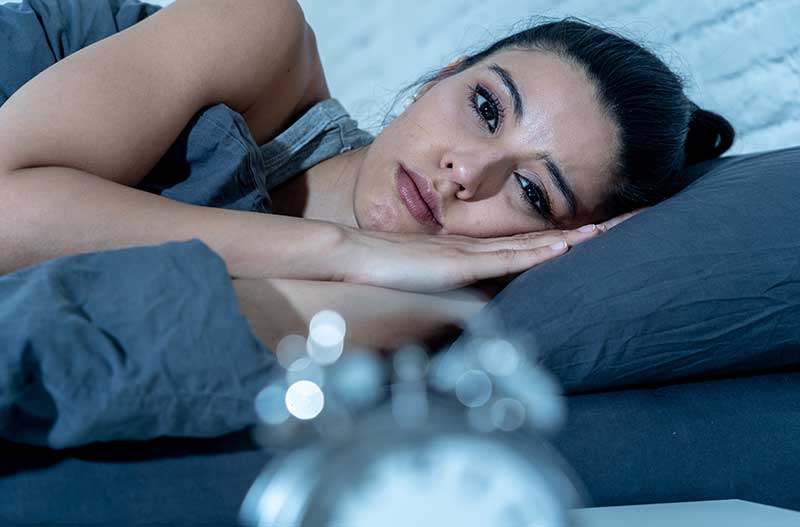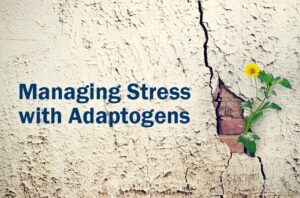Energetix | Emily Greene-Hartsfield, ND
Everyone has done it. We’ve all tossed and turned at night, stressing or worrying about one thing or another. We wonder when sleep will finally come, only to have the alarm clock go off, rudely informing us it’s time to get up! Sometimes we stay up late saying to ourselves, “one more show, one more chapter, or just a little more work, and then I’ll go to bed.” But missing sleep can have significant consequences.
Ancient Theories
Throughout history people have been fascinated with sleep. The first documented theory of the experience of sleep occurred in the writings of Greek philosopher Alcmaeon around 500 BCE. He believed that sleep was a loss of consciousness occurring when the blood drained from the vessels on the surface of the body. It is also rumored that Leonardo da Vinci only slept 15 minutes—but every 2 hours—a claim never confirmed! That pattern of sleep is referred to as polyphasic sleep or “daVinci sleep.” In 1584 Thomas Cogan wrote The Haven of Health, which promoted Aristotle’s idea that sleep was caused by gastric vapors rising up during digestion. Cogan goes on to speculate that meat, milk, and wine produce these vapors abundantly, bringing about sleep more effectively than other foods. Maybe that’s where the idea of a glass of milk before bed came from! Over the centuries beliefs about sleep and sleep patterns may have changed; however, the need for sleep remains the same.

We’re Losing Sleep
In previous decades American adults slept longer at night than they do now. Adults in 1910 averaged about 9 hours of sleep per night compared to about 6.8 hours a night in 2013. This is a lot of lost sleep in the last century. Research shows that 7-8 hours of sleep are needed at night to be well rested. It isn’t surprising that modern lifestyles are affecting sleep patterns. After the advent of the light bulb people started sleeping about 3 hours less because the additional light allowed them to stretch their daily activities into the night.
While having more light at night has given us the gift of productivity and safety, it also has some drawbacks. According to the National Sleep Foundation about 45% of adults report having poor sleep quality. The CDC now considers sleep disorders an epidemic. Just having poor sleep for a short time can result in increased stress, increased blood pressure, inflammation and impaired blood glucose levels. Chronic poor sleep has been associated with hypertension, diabetes, cardiovascular disease, mood disorders, and even obesity. Many people don’t make sleep a priority but with consequences like this, society needs to wake up or, rather, go to sleep!

The Internal Clock
Sleep is governed by an internal process, the body’s circadian rhythm. This sleep-wake cycle is roughly on a 24-hour clock and is governed by exposure to light. The circadian rhythm has effects on many systems of the body including the digestive, cardiovascular, nervous, and immune systems. Melatonin, the primary hormone of the pineal gland, is made from the amino acid tryptophan and plays a role in the body’s circadian rhythm. Melatonin levels rise in the evening in response to decreased light, preparing the body for sleep by promoting a relaxed state. The circadian rhythm and the production of melatonin can be affected by outside influences like light exposure, aging, jet lag and, of course, stress.

Stress and Sleep
Stress affects everyone and seems to be a normal part of life. While daily stress can keep us awake at night, not sleeping itself is a factor in producing more stress. Not all insomnia is caused by stress, but stress can cause insomnia.
Stress causes the adrenal glands to produce cortisol, enabling the body to cope with heightened demands. Cortisol is a hormone that helps regulate many processes in the body. Besides responding to stress, cortisol has effects on the body’s blood sugar levels, metabolism, inflammatory response, memory formation, salt and water balance, blood pressure and development of the fetus in pregnancy. There are cortisol receptors all over the body, and cortisol has different effects on various types of cells. Cortisol levels in the blood are normally higher in the morning than in the evening. The diurnal release of cortisol helps to regulate daily rhythms. When cortisol levels decrease at night, this allows melatonin to increase and the body to relax.

During times of stress cortisol is released, helping the body to respond appropriately (ie: fight or flight). However, during periods of excess or unrelieved stress, cortisol continues to be released. Sometimes even when the stressor is removed, the body may continue to release cortisol. This continuous release can have deleterious effects on many aspects of a person’s health including overstimulation to the nervous system, possibly causing anxiousness and loss of sleep. High cortisol levels at night can actually blunt the production of melatonin which can cause a “tired but wired” feeling, an inability to fall asleep, frequent waking, and irritability. This poor quality of sleep can perpetuate the cycle of stress and sleeplessness. To address this, practitioners may prescribe adaptogenic herbs or homeopathy.

We need sleep to repair and rejuvenate our bodies. Major restorative functions take place while we sleep: muscle growth, tissue repair, protein synthesis, brain development, immune system functions, and hormone release. Some of these functions may not occur at all if we don’t get adequate sleep. Incorporating stress-reducing lifestyle choices such as exercise, eating a healthy diet, mindfulness or other relaxing activities helps to reduce stress, which in turn can mean better quality sleep at night.

Energetix clients may feel free to call Practitioner Support for any questions about stress or sleep support and other features of our products: 800.990.7085.

Emily Greene-Hartsfield, ND is a Practitioner Support Specialist and Quality Product Manager at Energetix Corp in Dahlonega, GA. Dr. Hartsfield earned her Doctor of Naturopathic Medicine degree from Bastyr University in Seattle, WA., received her BSc in Biology with a concentration in Medical Laboratory Science from Auburn University at Montgomery, and holds an associates degree in Bioscience Technology. During her time at Bastyr, she found her love for working with homeopathy and botanical medicine and the study of fertility, pediatrics, women’s health, and gastrointestinal disorders. She is a Certified Lactation Educator and has additional training in Naturopathic Fertility, Craniosacral Therapy, and Psychosomatic Energetic Therapy. In her spare time, Dr. Hartsfield enjoys spending time with her family, reading, traveling, baking, and hiking.

References:
National Sleep Foundation’s 2018 Sleep in America® Poll Shows Americans Failing to Prioritize Sleep. https://www.sleepfoundation.org/press-release/national-sleep-foundations-2018-sleep-americar-poll-shows-americans-failing. Published March 11, 2018. Accessed October 17,2019.
National Sleep Foundation. Sleep in America® Poll 2019 Sleep Health & Scheduling. https://www.sleepfoundation.org/sites/default/files/201903/SIA_2019_Sleep_Health_and_Scheduling.pdf. Unites States of America; 2019.
Stress and Your Health. Hormone.org https://www.hormone.org/your-health-and-hormones/stress-and-your-health. Published October 2019. Accessed October 20, 2019.
Harvard University. Healthy Sleep. http://healthysleep.med.harvard.edu/healthy/. Published January 2, 2008. Accessed October 17, 2019 How Does Sleep Contribute to All of These Things? Sleepfoundation.org. https://www.sleepfoundation.org/articles/what-happens-when-you-sleep. Updated 2019. Accessed November 1, 2019.




